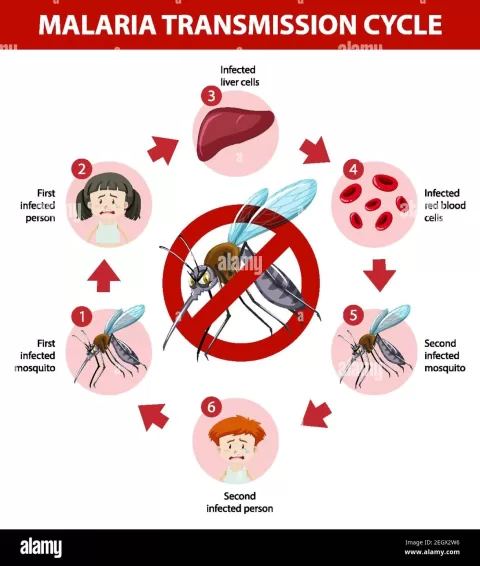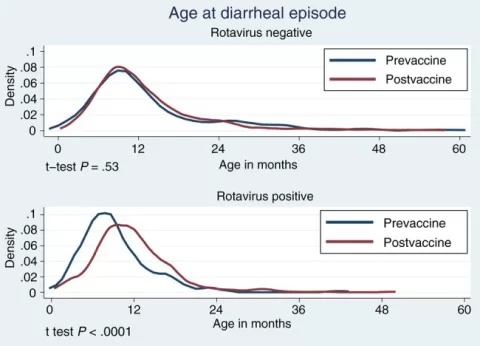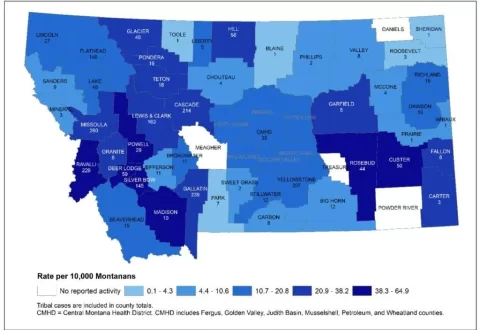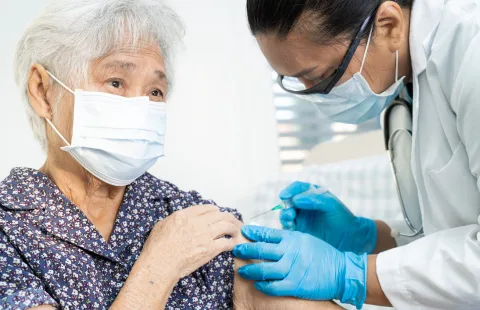In a dramatic Senate hearing today, Robert F. Kennedy Jr. faced intense scrutiny regarding his controversial handling of public health policies, particularly in relation to the CDC turmoil surrounding COVID-19 vaccine recommendations. As the Secretary of Health and Human Services, Kennedy claimed, “We are the sickest country in the world,” pointing fingers at the agency’s failures that led to the abrupt firing of key personnel, including Dr. Susan Monarez. This session, marked by allegations of anti-vaccine sentiment, raised significant questions about the effectiveness of immunization schedule changes and the trustworthiness of the CDC amid Kennedy’s resignation calls. Senator Elizabeth Warren and others pressed Kennedy on his statements about the vaccination strategy and the implications of his leadership during the pandemic. As public confidence in the CDC declines, with polls showing rising skepticism of Kennedy’s medical advice, this Senate hearing highlights the critical crossroads facing American health policies.
In today’s pivotal Senate committee session, Robert F. Kennedy Jr. was thrust into the spotlight, challenging the very foundation of the nation’s public health response. As the current head of the Department of Health and Human Services, Kennedy’s remarks regarding the chaotic state at the Centers for Disease Control and Prevention (CDC) and the contentious debate over vaccine protocols prompted heightened discussion about the efficacy of health recommendations amid rising concerns over childhood vaccination schedules. The scrutiny over Kennedy’s stance, which has led to increasing calls for his departure, underscores the broader implications for American health initiatives and the debate over parental autonomy in health decisions. This hearing not only set the stage for an intense dialogue about the operational integrity of public health agencies but also revealed a growing divide among lawmakers regarding trust in vaccine safety amidst a backdrop of conflicting narratives related to COVID-19.
Impact of CDC Turmoil on Public Health
The ongoing turmoil at the Centers for Disease Control and Prevention (CDC) has raised significant concerns regarding public health protocols in the United States. Secretary of Health and Human Services Robert F. Kennedy Jr. recently highlighted this distressing state of affairs during a Senate Finance Committee meeting. His remarks emphasized the serious implications of leadership changes and discontent within the CDC, which he referred to as a critical failure in safeguarding American citizens’ health, particularly during the COVID-19 pandemic. The fallout from this turmoil could lead to shifts in public trust towards health agencies, an essential factor in supporting effective public health strategies. With recent calls for Kennedy’s resignation following his controversial statements, many are left wondering how the CDC will rebuild its credibility in the face of public skepticism.
Moreover, the uncertainty stemming from these internal conflicts at the CDC has the potential to complicate the vaccination discourse in America. Questions about the integrity of the CDC’s recommendations, such as those concerning the COVID-19 vaccine, arise amid tensions over their current policies. The agency’s credibility is paramount, especially given the critical role of vaccinations in control mechanisms for diseases. As public health is often reliant on consensus and trust, the discord within the CDC may prove detrimental to future immunization strategies.
The repercussions of CDC turmoil extend beyond just internal staffing issues; they further complicate the dialogue surrounding vaccination recommendations and public compliance. With prominent figures like Kennedy challenging the established vaccine guidelines, new dynamics emerge in public perceptions of immunization. In light of the climate of distrust, the public may be more resistant to adherence to updated guidelines, as many seek clarity amid a barrage of conflicting information. This challenges the effectiveness of vaccination campaigns, especially when parents consider their children’s health and immunization schedules, which have been subject to changes and updates over the years.
Consequently, it’s vital for public health officials to reassess how to communicate effectively about vaccines to mitigate confusion and mistrust. With Kennedy’s vocal opposition to certain vaccination protocols and the rise of anti-vaccine sentiments, the impasse calls for urgent, transparent dialogue that is anchored in science and public health ethics. The CDC must work diligently to restore its authority and credibility to navigate this landscape effectively.
Kennedy’s Stance on COVID-19 Vaccine Recommendations
During the Senate hearing, Robert F. Kennedy Jr. voiced his perspective on COVID-19 vaccine recommendations, asserting that current guidance lacks clarity and coherence. His statement insinuated that the recommendations issued by the CDC do not align with the evolving landscape of pandemic management and public health needs. With many Americans still confused about the necessity and timing of booster shots, Kennedy’s assertion that all individuals could opt for a new COVID-19 booster raises critical questions about the existing recommendations. The CDC’s role in shaping these guidelines can either foster or hinder public confidence in vaccination efforts.
Furthermore, Kennedy’s perspective reflects a growing discontent among parts of the population regarding vaccine mandates and public health policies, especially while acknowledging his significant following. His controversial remarks contribute to an already polarized debate over vaccine efficacy and safety, often exacerbated by miscommunication and misinformation. The remarks made by Kennedy during this hearing serve to not only underline the immediate confusion surrounding COVID-19 vaccine recommendations but also bring to light broader concerns regarding public health communication and the stewardship of health agencies.
The implications of Kennedy’s claims extend beyond individual vaccine policies; they resonate with larger trends in public health and the political landscape of vaccination protocols. His comments may incite reconsideration of established recommendations and fuel discussions about the flexibility of these guidelines. This discourse is particularly pressing considering the diverse opinions among healthcare providers and the public on vaccine adoption, leading to potential shifts in policy moving forward. As Kennedy navigates his role amidst increasing opposition calls, the ongoing dialogue around vaccine recommendations will require concerted efforts to ensure any modifications are effectively communicated to the public.
Discussions about COVID-19 vaccines necessitate a balance between promoting public safety and respecting individual liberties. As Kennedy advocates for parental decision-making concerning immunization, it raises a fundamental question about how health authorities can best guide these choices without eroding public trust. The evolving situation will undoubtedly arrive at the crossroads of public health ethics, individual rights, and the drive toward greater community immunization.
Kennedy’s Controversial Views on Childhood Immunization
In response to concerns about the childhood immunization schedule, Robert F. Kennedy Jr. defended the current protocols while also touching on the sentiment that American children today receive too many mandatory vaccinations compared to previous generations. This perspective is contentious, as it finds resonance with some parents who feel overwhelmed by the pace and number of vaccinations. Kennedy’s remarks reveal the broader debate about childhood immunization’s balance between safeguarding public health and respecting parental autonomy in health decisions. As the CDC continues to formulate immunization schedules, the discussions sparked by Kennedy contribute to a growing dialogue around vaccine policy reform.
While Kennedy asserted that he did not anticipate changes to the measles, mumps, and rubella vaccine in the short term, his view aligns with a critical aspect of contemporary public health discussions—the need for ongoing assessment of immunization protocols in response to both scientific evidence and public sentiment. With the backdrop of his recent contentious exchanges and potential calls for his resignation, Kennedy is at the forefront of a pivotal conversation about childhood health guidelines. Public health advocates emphasize that any changes to childhood vaccination policies should reflect rigorous research while addressing community concerns.
Public and Political Reaction to Kennedy’s Senate Hearing
The recent Senate hearing, featuring Robert F. Kennedy Jr., elicited a variety of reactions from both the public and political figures, resulting in a heightened atmosphere of scrutiny and calls for accountability. Following his confrontational exchanges and contentious proclamations about health guidelines, public trust has been significantly shaken. Polls indicate that only 25% of Americans feel confident in Kennedy’s medical advice, highlighting a sharp contrast to the CDC’s established guidelines, which still enjoy trust from over half of the surveyed population. This division reflects the significant polarization within the American public concerning health authority credibility and the effectiveness of pandemic response strategies.
As various senators called for Kennedy’s resignation post-hearing, it became evident that political backing is faltering amidst this growing skepticism. Kennedy’s ability to navigate this public and political backlash will be paramount as he attempts to solidify his position while addressing health concerns at the national level. The divergent views on his competency as HHS secretary illustrate a larger divide over public health governance and underscore the urgency of restoring trust in health leadership.
The response from political leaders demonstrates a clear demand for cohesive public health policies that align with empirical evidence and foster public compliance. Legislative efforts may need to focus on clarifying the messaging surrounding the COVID-19 vaccine, especially in light of the confusion compounded by Kennedy’s statements. As demands for resignations echo in chambers across the Senate, the ability of public health entities to coalesce under a unified strategy will be critical in safeguarding the progress made in vaccination efforts, particularly as new variants emerge and public immunity wanes.
Creating a framework that instills public confidence while addressing individual concerns is critical for effective communication in public health. The fallout from the hearing highlights the importance of vigilance and transparency from health leaders, ensuring that strategies adapted from this point forward are rooted in both science and community trust. As the political landscape adjusts to the ensuing changes, how leaders respond will likely shape public health outcomes in an increasingly complex arena.
Frequently Asked Questions
What happened during the Robert F. Kennedy Jr. Senate Hearing regarding CDC turmoil?
During the Robert F. Kennedy Jr. Senate Hearing, Kennedy addressed the turmoil at the CDC, criticizing it for its handling of public health during the COVID-19 pandemic. He cited the need to fire employees, including CDC member Susan Monarez, due to allegations of incompetence. Kennedy’s remarks highlighted a significant divide over the agency’s policies and vaccine recommendations.
How did Robert F. Kennedy Jr. respond to COVID-19 vaccine recommendations in the Senate Hearing?
In the Senate Hearing, Robert F. Kennedy Jr. stated that the current recommendations for COVID-19 vaccines were confusing, suggesting that while some healthy adults should not pursue booster shots, anyone could still opt for a new COVID-19 booster. His comments reflected ongoing debates about public health policies and vaccine availability.
What were the calls for Robert F. Kennedy Jr.’s resignation during the Senate Hearing?
Calls for Robert F. Kennedy Jr.’s resignation intensified during the Senate Hearing, prompted by concerns over his controversial statements on vaccines and public health. A poll indicated that a majority of Americans expressed distrust in his medical advice, fueling demands for him to step down from his position as Secretary of Health and Human Services.
What did Robert F. Kennedy Jr. say about changes to the childhood immunization schedule?
Robert F. Kennedy Jr. addressed questions regarding potential changes to the childhood immunization schedule during the Senate Hearing, stating that he did not foresee any adjustments to the measles, mumps, and rubella vaccine in the near future. He advocated for parental choice in vaccinations, echoing a larger debate around immunization policies.
How did Senator Elizabeth Warren challenge Robert F. Kennedy Jr. at the Senate Hearing?
Senator Elizabeth Warren challenged Robert F. Kennedy Jr. during the Senate Hearing, questioning his credibility after his confrontation with CDC official Susan Monarez. Warren’s probing sought to clarify Kennedy’s stance on vaccine safety and his claims about the CDC’s recommendations, highlighting the contentious atmosphere surrounding public health leadership.
What were the main criticisms of Robert F. Kennedy Jr.’s public health policies during the hearing?
Criticisms of Robert F. Kennedy Jr.’s public health policies during the Senate Hearing centered around his claims of CDC failures during the COVID-19 pandemic, his controversial statements about vaccines being linked to autism, and his management style regarding personnel decisions at the CDC. Many senators questioned his integrity and trustworthiness as Secretary of Health.
| Key Points | Details |
|---|---|
| Senate Hearing | Robert F. Kennedy Jr. addressed the Senate Finance Committee regarding his actions at the CDC. |
| Controversial Statements | Kennedy claimed, “We are the sickest country in the world,” in response to criticism of the CDC. |
| Firing of CDC Employees | Numerous CDC employees, including Susan Monarez, were fired amid accusations of ineffectiveness. |
| Confrontation with Monarez | Kennedy directly questioned Monarez’s trustworthiness during the hearing. |
| COVID-19 Vaccine Recommendations | Kennedy stated conflicting information about booster shots, asserting all could get them despite differing expert opinions. |
| Public Trust and Polling | A poll revealed that only 25% of Americans trust Kennedy with medical advice. |
| Calls for Resignation | Democratic senators demanded Kennedy’s resignation over concerns about his public health approach. |
Summary
The Robert F. Kennedy Jr. Senate Hearing brought significant scrutiny to the actions and statements of Kennedy as he addressed concerns regarding the Centers for Disease Control and Prevention. As tensions rose, his controversial approaches and the firing of key personnel led to serious questioning of his leadership and the future of public health guidelines in America. The committee’s findings reflect a pivotal moment in health policy discourse amid rising public concern over vaccination practices and COVID-19 management.
The content provided on this blog (e.g., symptom descriptions, health tips, or general advice) is for informational purposes only and is not a substitute for professional medical advice, diagnosis, or treatment. Always seek the guidance of your physician or other qualified healthcare provider with any questions you may have regarding a medical condition. Never disregard professional medical advice or delay seeking it because of something you have read on this website. If you believe you may have a medical emergency, call your doctor or emergency services immediately. Reliance on any information provided by this blog is solely at your own risk.








